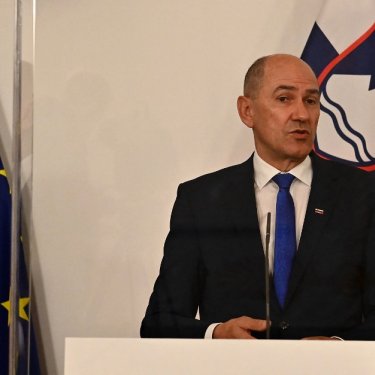Public media independence under threat in the Czech Republic and Slovenia

The public service media in the Czech Republic and Slovenia are resisting political pressure, including accusations of criminality and threats to funding, but their editorial and financial independence is clearly in danger. Reporters Without Borders (RSF) calls on politicians in these two countries to safeguard public media independence in accordance with Council of Europe recommendations.
In a climate of considerable tension at state-owned Czech Television (ČT), the Czech chamber of deputies is preparing to renew four of the 15 members of the broadcaster’s supervisory board, the ČT Council, on 25 May. The tension had been fuelled by an attempt to remove ČT director-general Petr Dvořák, who was accused of a conflict of interests, leading him to file a defamation suit on 19 May. This serious accusation – which was baseless, an administrative investigation found – was made by ČT Council member Hana Lipovská during a meeting of the council at ČT headquarters, at which she arrived accompanied by police officers, claiming that the director-general had threatened her life. Elected to the council by the ruling coalition, Lipovská is pursuing the same goal as Czech President Miloš Zeman, who has repeatedly denigrated journalists and who called for Dvořák to be replaced last year, describing ČT as “part of the opposition.”
Bojan Veselinović, the director-general of the state-owned Slovenian Press Agency (STA), has been subjected to similar smear attempts. Slovenia’s prime minister, Janez Janša, who often attacks journalists, accused him in early May of being an “accomplice to the murder” of a former STA chief editor. The former STA chief editor died of an illness in 2010, a few months after Veselinović fired him for professional misconduct. Veselinović says he was unaware of his former colleague’s poor health and recently announced that he was bringing criminal and civil lawsuits against the prime minister. Janša, who often expresses far-right views, is open about his objectives. He called for Veselinović’s removal in March, describing him as a “political tool of the far left” and referring to STA as a “national disgrace.”
The public service media in Hungary and Poland – countries ranked as “problematic” by RSF's World Press Freedom Index – are already controlled by their political leaders, but the battle to maintain public media independence continues in the Czech Republic and Slovenia – countries where the Index still classifies the situation as “fairly good.”
“The independence of the Czech and Slovene public media is under threat, but the example of Czech Television, long seen as a benchmark of quality in the region, shows that central Europe’s public service media are not condemned to subjugation by political parties,” said Pavol Szalai, the head of RSF’s European Union and Balkans desk. “Czech and Slovene politicians must cease violating the limits on their authority by trying to fire the heads of public service media. We urge them to stop pressuring these media via their supervisory bodies and to stop manipulating the issue of their funding.”
These calls are in line with the recommendations on public service media governance adopted in 2012 by the Committee of Ministers of the Council of Europe, of which the Czech Republic and Slovenia are members. These recommendations state that “appointments [in the highest supervisory or decision-making authority] cannot be used to exert political or other influence over the operation of the public service media” and that the method and level of funding “cannot be used to exert editorial influence or threaten institutional autonomy.” Politicians in both countries have clearly been violating these recommendations.
In the Czech Republic, HlidaciPes.org website journalist Vojtěch Berger voiced his concerns in an interview for Czech radio interview. He said an alliance consisting of Prime Minister Andrej Babiš’s ANO party, the Czech Communist Party and the far-right SPD had, in recent years, elected candidates to the supervisory bodies who were more hostile to the public service media. Most of the ruling coalition-endorsed candidates for election to the ČT Council on 25 May take the same critical line on ČT as the coalition’s parties. In Slovenia, the ruling coalition unveiled a bill in February – without consulting the STA – that would transfer responsibility for appointing the members of the STA’s Supervisory Council from parliament to the government.
The issue of public service media funding is also being exploited politically, in violation of the Council of Europe’s recommendations. In the Czech Republic, the far-right SPD, which is very critical of ČT, is proposing that the annual fee paid by citizens to cover the costs of public broadcasting should be replaced by a direct allocation from the state budget, making ČT dependent on the government. Slovenia’s politicians are not just threatening, they have taken action. The government suspended the STA’s funding on administrative grounds in February.
Slovenia fell four places in RSF's 2021 World Press Freedom Index and is now ranked 36th out of 180 countries. The Czech Republic is ranked 40th.



